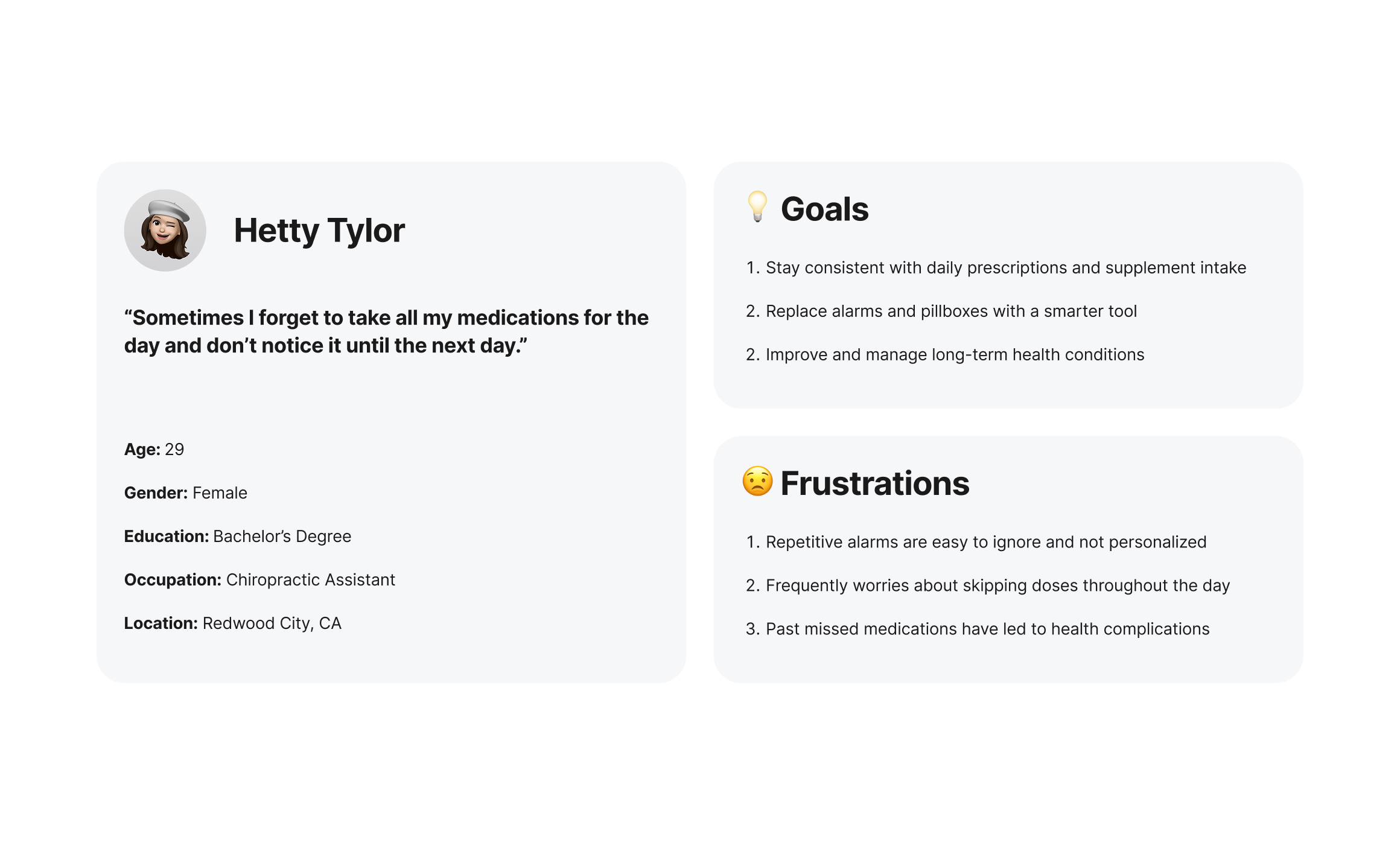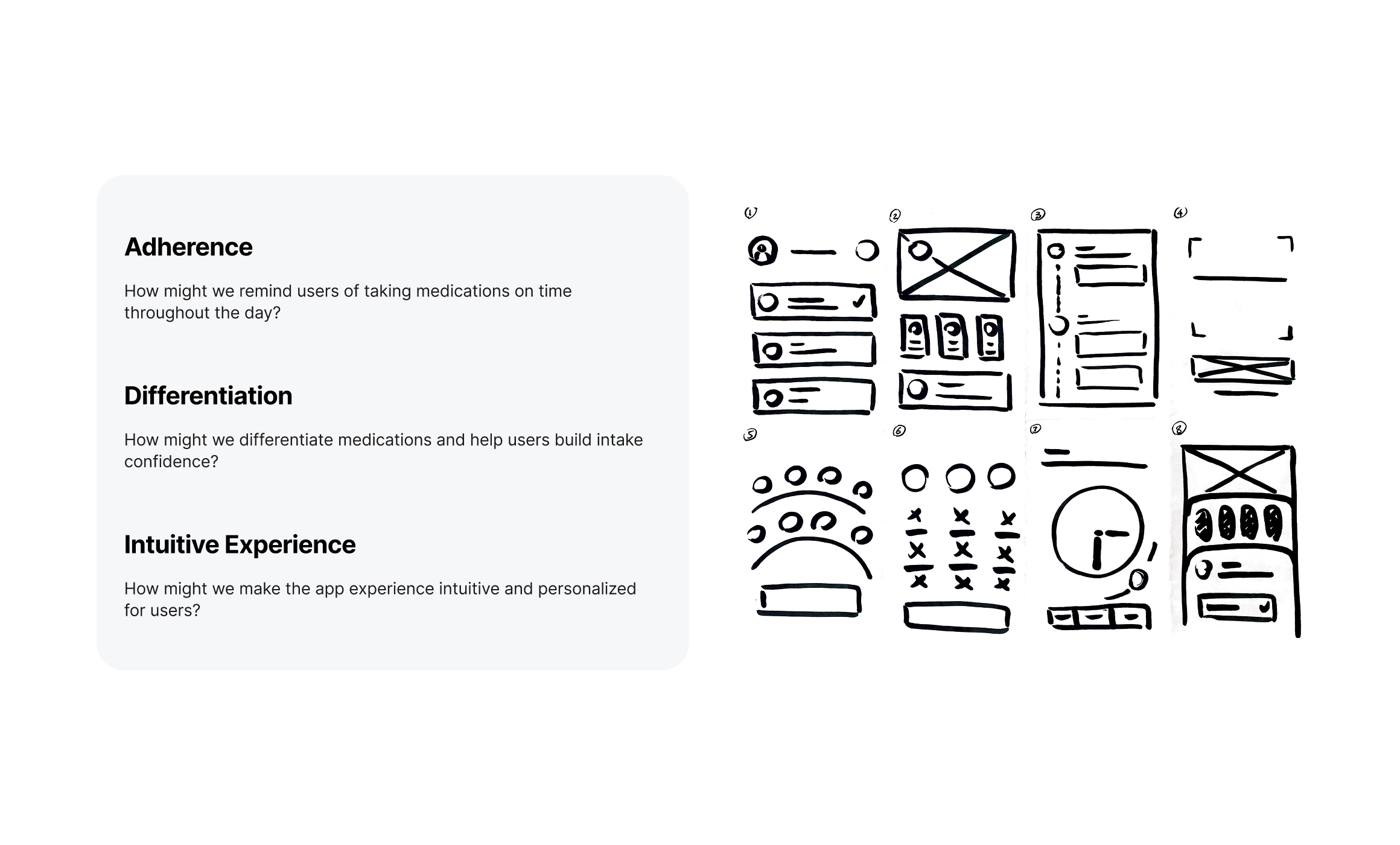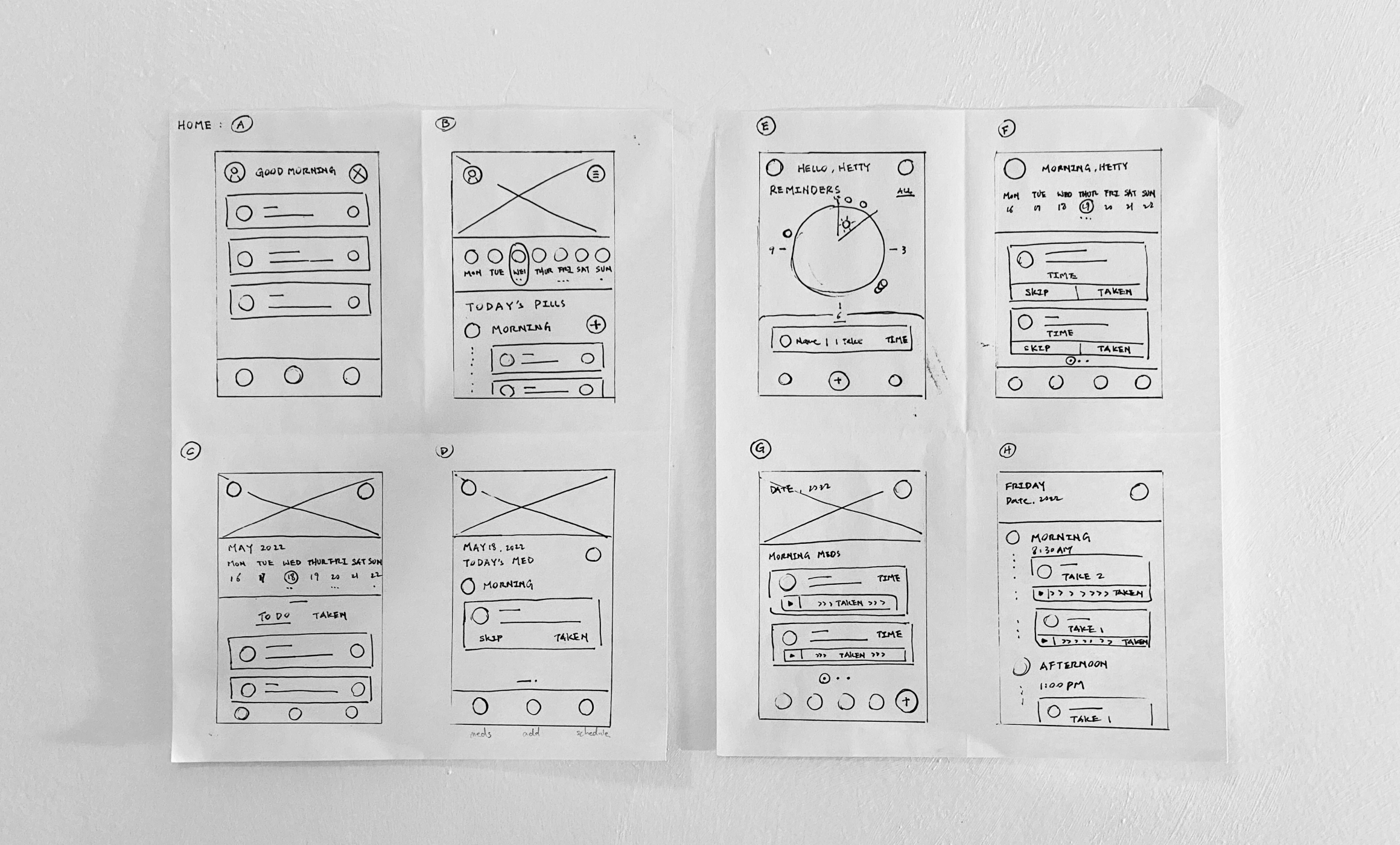Pillog
Overview
Many people take daily medications and supplements, but staying adherent is often a challenge for those with chronic conditions. Pillog is a mobile app designed to help people manage their medication schedules, ultimately improving adherence and health outcomes.
Duration: May-June 2022
Responsibility
Research
UI/UX
Prototyping
User Testing
Award
Nominated for the UX Design Awards 2023 — International Design Center Berlin (IDZ)



















